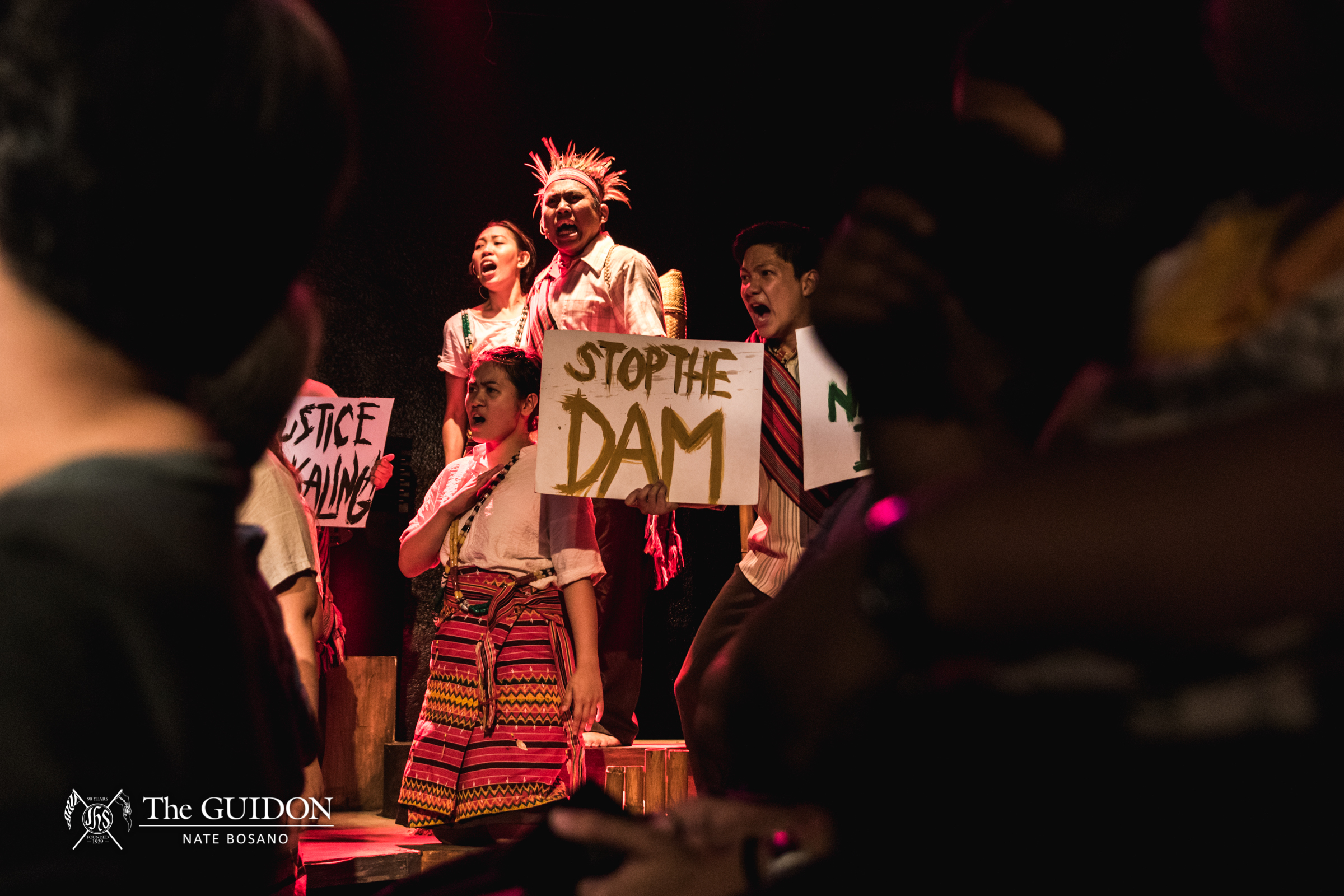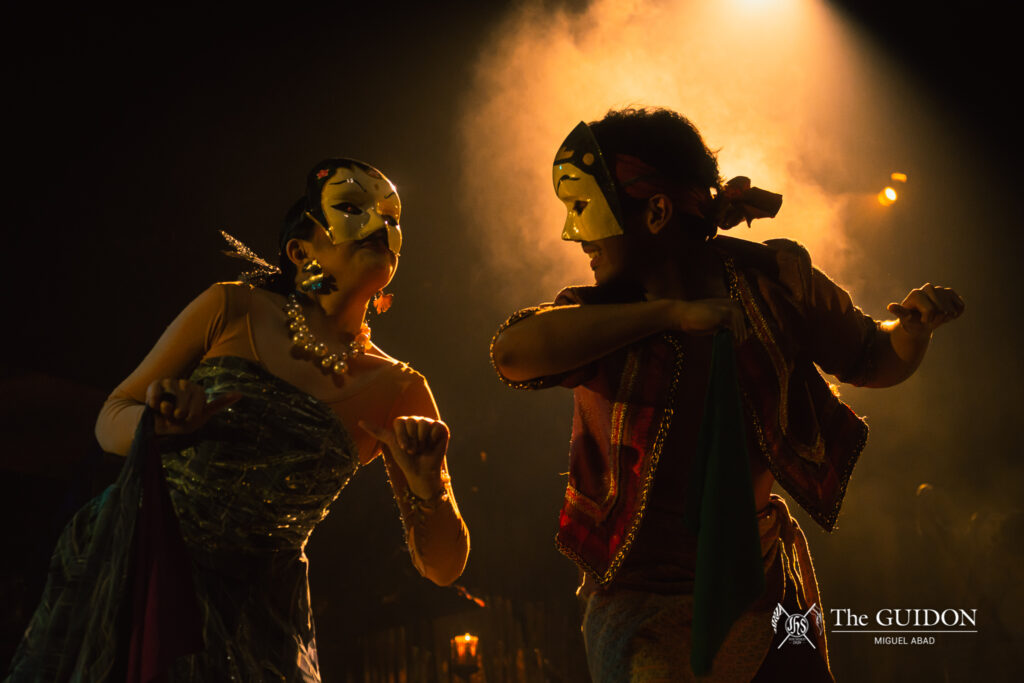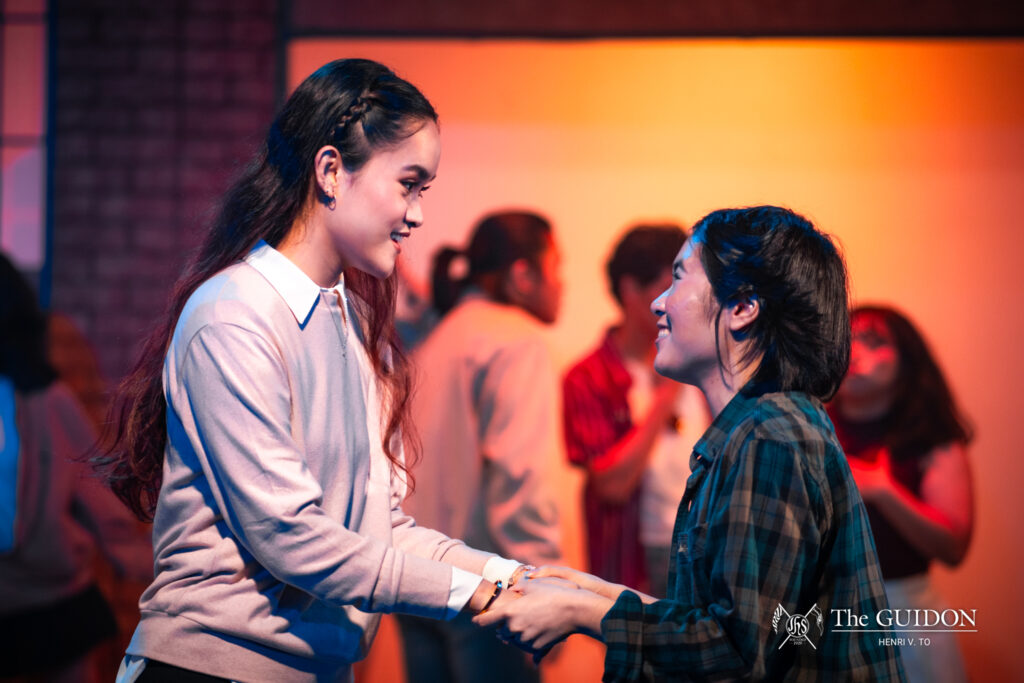Plays that depict historical events or feature an advocacy run the risk of becoming dull and preachy. Ateneo ENTABLADO (ENTA)’s Macli-ing Rebista acknowledges this possibility, and thus fashions a highly interactive and dynamic production–one that’s sure to linger with audiences long after curtain call.
Directed by Jerome Ignacio, Macli-ing Rebista draws inspiration from Malou Jacob’s 1988 play Macli-ing Dulag. Respected Kalinga tribe leader Macli-ing Dulag was shot to death by Marcos-controlled forces after he resisted the construction of the Chico Dam. Eight years later, a fictional group of Kalinga are taken aback when a mysterious plant appears at his burial site. Later on, they find out that this serves a warning from him that history is repeating itself in the Kaliwa Dam issue, which is sure to affect the Dumagat-Remontados tribe in Rizal.
Points for participation
Unlike the traditional play that follows a linear structure from beginning to end, Macli-ing Rebista prides itself in being a dialogue between actor and spectator: Its eight inventive acts range from a game and a question-and-answer portion, to narratives from both the past and the present. With fluid transitions in between, these devices clearly and creatively instill the core message in audiences by encouraging them to participate.

Though all cast members have to wear several hats throughout the course of the show, the intensity of their emotions remains regardless of whom they’re portraying. A standout performer is Jethro Tenorio (alternate Jan Rey Escano), who commands the stage in his portrayal of Macli-ing Dulag, a leader who is tender towards his people, yet ferociously brave before power-hungry politicians and private landowners. Nico Claustro (alternate Adrian Reyes) breathes life into the greedy government official who emphatically delivers derogatory remarks that make him easy to despise. Lawrence Miranda (alternate Robi Dizon) likewise stands out as Lakay Katutubo, a displaced member of an indigenous community, who expertly shows the anguish that comes with this experience solely through his facial expressions.
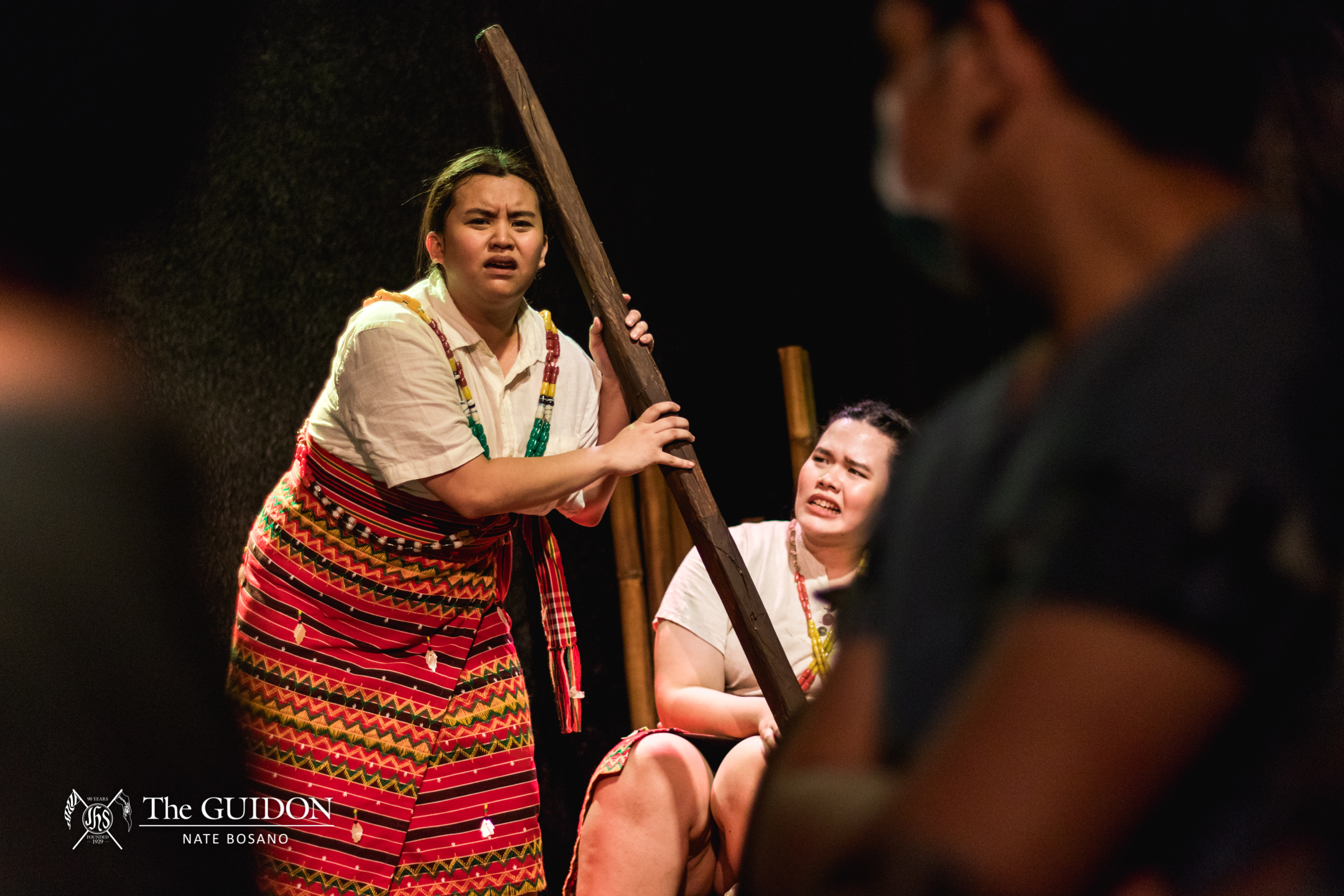
With this, it’s easy to assume that the rest of the ensemble—Ronah de la Peña (alternate Karenina Ng), Ethan Reyes (alternate Adrian Soriano), Carmela Reyes (alternate Lyka Bernal), Justin De Leon (alternate Paulo Alviar), Trina Aquino (alternate Page Claustro), Stacey Dy (alternate Samantha Aviles), and Alexander Dungca (alternate Andy Reysio-Cruz)—are merely relegated to their positions in the background. But whether it’s members of the tribe, soldiers, or normal citizens, they seamlessly slip into their roles like a second skin–giving a vibrant voice to whatever sector they represent at the moment.
In turn, Chelsea Hermoso’s simple yet skillful set design complements the cast’s powerful performances. The stage only houses adjacent platforms and a makeshift bridge made to resemble mountaintops, as well as a projector and screen to flash facts and details that guide the story along. Fitz Bitana’s music and lyrics and Clarissa Mijares’ choreography likewise made for moving renditions of cultural hymns further amplified by the cast’s stunning live vocal performances.
Immersed in experience
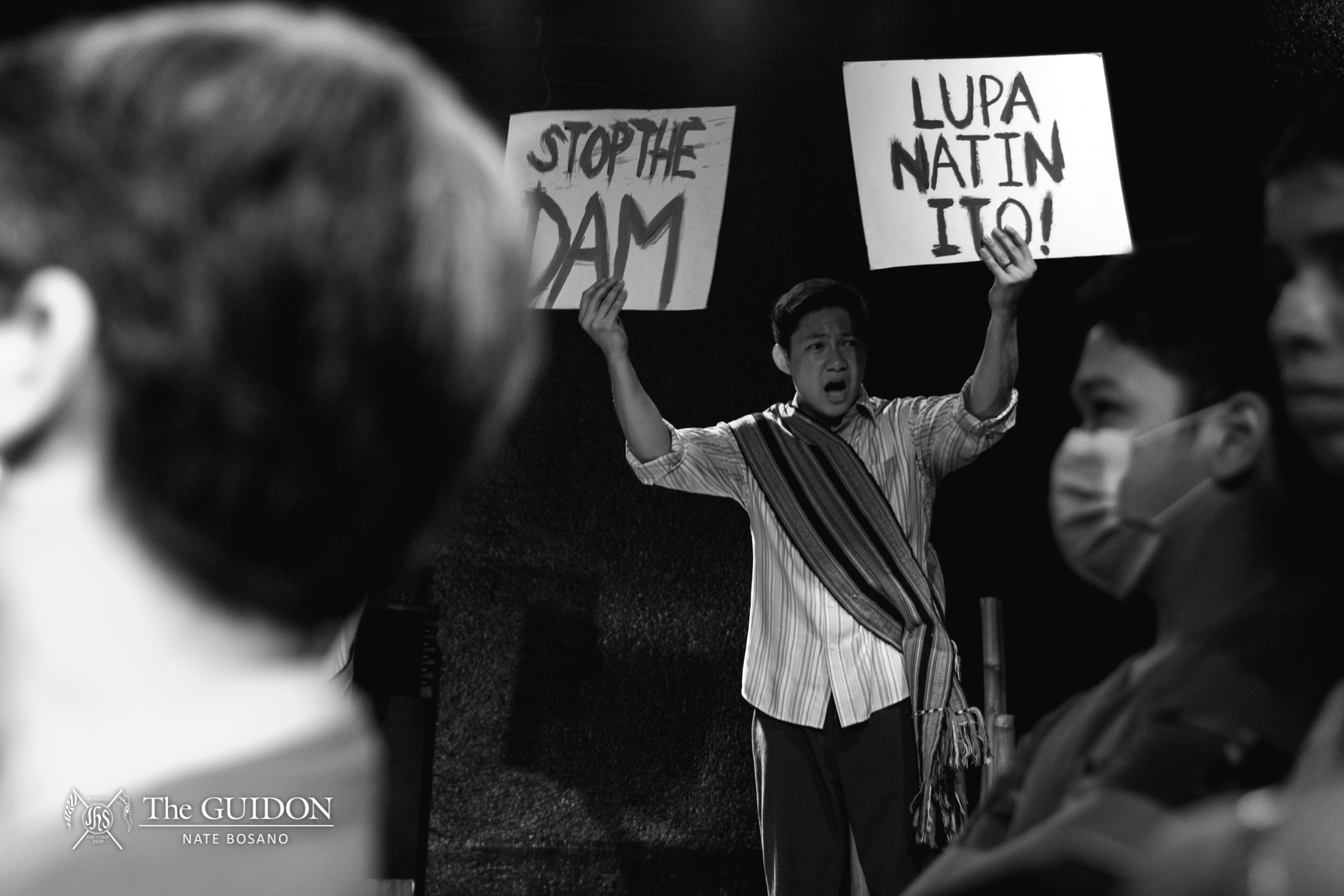
After a glimpse into the plight of indigenous peoples, one can only wonder how we remain unaware of these struggles for so long. This ignorance belies many people’s detachment from the controversy surrounding the Kaliwa Dam. ENTA then does an expert job in not only talking about the issue, but also persuading everybody to have a say. By focusing on how the indigenous are so closely connected to their ancestral lands, the production begs for a reassessment of two things: The harmful stereotypes often attached to indigenous groups, as well as the aspects of their culture often sacrificed in the name of “national progress.”
Overall, the play succeeds in disturbing the comfortable and compelling them to take action in whatever way they can. With gripping performances and an innovative approach to social issues, this is definitely a production not to be missed. Macli-ing Rebista soars as a long-overdue avenue for discourse, a fitting tribute to a fallen leader, and a necessary reminder that the construction of both dams was never a mere economic and political discussion–but one with actual lives at stake.
Photos by Nate Bosano


